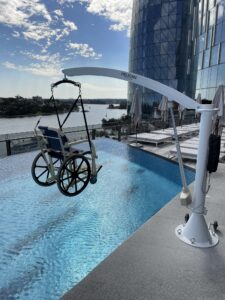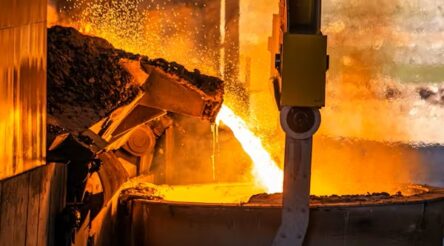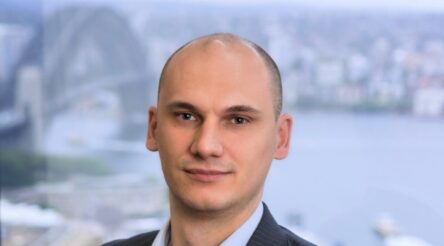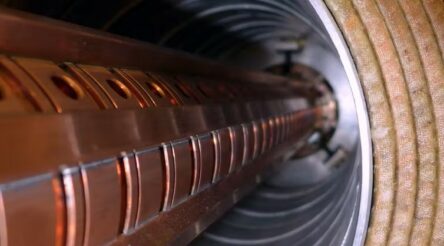Celebrating Australian Made — responding as needs arise

The details of Para Mobility’s history are not totally clear. The assistive technology company began in 1983, and CEO Peter Cleaves says it’s had various different names and about six different owners during the time.
What seems clearer is that it began with and continues to operate based on needs.
“Like most AT businesses in the sector, it started out in a garage, and it started out from a need… And to be honest with you, that’s the sector it has been in Australia for many, many years,” Cleaves tells us.
“It’s been a mums and dads sector. And it has grown a little bit from there. And as acceptance of inclusion has been gradually… more regarded, we have expanded what we’ve been doing, as have others in Australia.”
Throughout its time, Para Mobility has developed different products for the differently-abled, but it has sharpened its focus to lifting, mobility and access products, particularly for aquatic environments.
Its work can be found in gyms, rehab centres, pools and homes, and includes hoists for pools and spas, aquatic wheelchairs, pool steps, change tables, car access lifts and bathrooms.
According to the company, it is the nation’s only manufacturer of pool hoists, which are also serviced every six months. Three installed at the Sydney Olympic Park Aquatic Centre are still going strong a quarter of a century later.
Every hoist is made out of marine-grade stainless steel and customised based on requirements.
“If you think of a pool – everybody’s pool’s different. So while we’ve got products that are standard in their operation, because everyone’s pool’s different we have to make the modifications to those,” explains Cleaves.
“People’s needs are different. So we make the product that we’ve got to meet the needs of the individual and the environment that it’s going to operate in. So we might have a hoist and that hoist may have a 1,500 millimetre arm on it, or it might have a 21 [hundred] millimetre arm on it for a longer reach.
 “Or we might have somebody that needs to go into a spa pool and a pool… We need to make them to suit the individual user and their environment. When you buy something from overseas it either works or it doesn’t work.”
“Or we might have somebody that needs to go into a spa pool and a pool… We need to make them to suit the individual user and their environment. When you buy something from overseas it either works or it doesn’t work.”
Para Mobility is a small company, with nine employees, in a sector that has traditionally been a “cottage industry”, as Cleaves describes it.
“When you’re looking at things being made in small quantities in very small premises without the sophistication of a lot of modern day equipment, they become very expensive,” he says, when asked about the scale issues of such companies.
“So it’s a hard sector to be in, and mostly because of these small volumes it can be very costly for Australian companies to do that sort of thing. That’s why we’ve stuck with a few products that we have, and we do them well. We can’t be everything to everybody.”
Despite its impact, assistive technology in Australia has only started to gain recognition in the last five to ten years, Cleaves estimates.
On the topic of recognition, Para Mobility is a finalist in the Supplier/Manufacturer of the Year category at next week’s Assistive Technology Suppliers Australia (ATSA) Awards.
Speaking to Cleaves, it becomes clear that there’s a strong sense of purpose attached to being a smaller manufacturer going up against cheap imports.
“Products coming from overseas – they are what they are. You can buy them, if they work for you they do. If they don’t, well that’s what it is,” he says.
“Our products we make bespoke for people to actually fulfil their requirements. And that’s one of the beauties of Australian Made… and we’re proud to be part of that.”
Pictures: supplied
 This story is part of Celebrating Australian Made, an annual series sponsored by Australian Made and profiling its licensees. For more information on becoming a licensee, visit this link.
This story is part of Celebrating Australian Made, an annual series sponsored by Australian Made and profiling its licensees. For more information on becoming a licensee, visit this link.
@aumanufacturing Sections
Analysis and Commentary Awards casino reviews Defence Gambling Manufacturing News Online Casino Podcast Technology Videos





